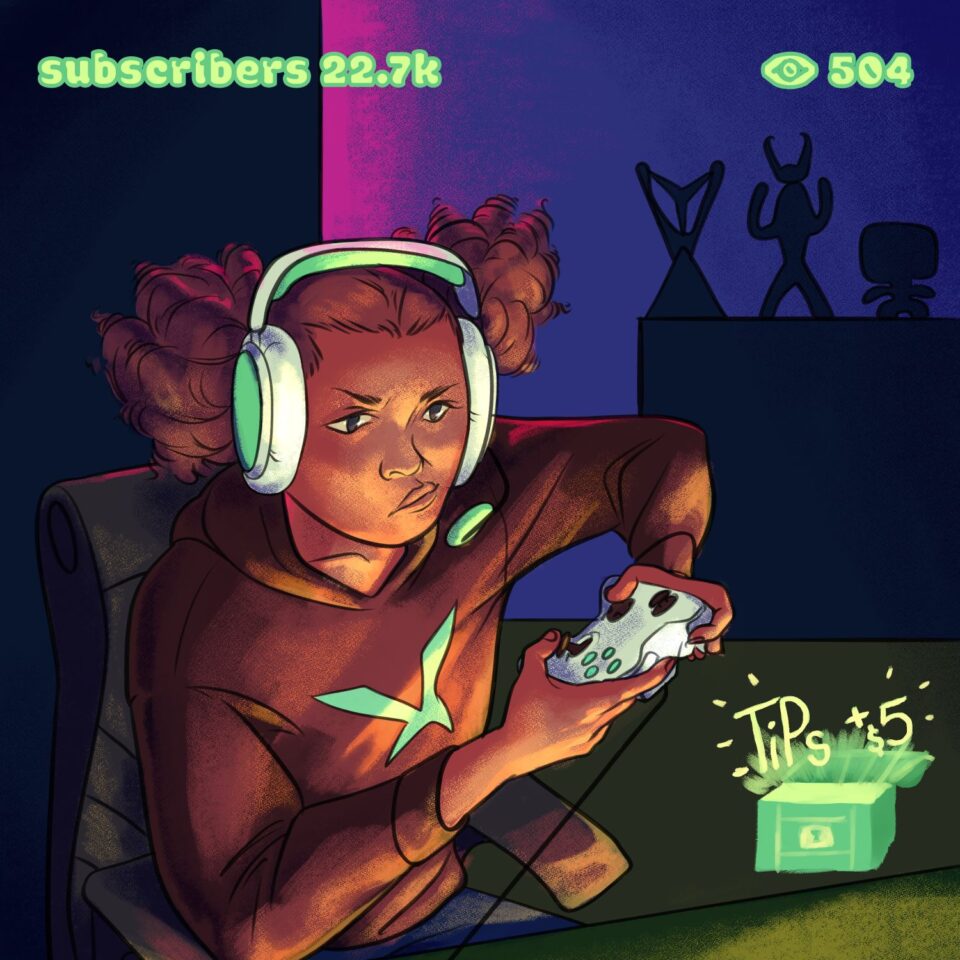
Frontiers in Digital Child Safety
Designing a child-centered digital environment that supports rights, agency, and well-being
As digital technologies become ever more integrated into daily life, children face both unprecedented opportunities and evolving risks. Across the board, including – parents/caregivers, policymakers, educators, technologists, and young people themselves – there is a shared commitment: to keep children safe in the digital environment while still honoring their autonomy and ensuring equitable access to all that the digital environment offers.
About the report
“Frontiers in Digital Child Safety: Designing Child-Centered Digital Ecosystems That Support Rights, Agency, and Well-Being” presents a forward-looking vision for digital child safety. Rather than relying primarily on reactive, restriction-based safety measures, the report explores innovative ways to promote digital safety through child-centered design strategies and outlines a roadmap to proactively embed safety, rights, agency, and well-being into the very fabric of digital products, services, and policies.
This report is the culmination of a year-long initiative led by an international, multi-disciplinary Working Group of researchers, designers, educators, child advocates, and policy experts. The effort was led by an academic consortium chaired by Professors Sandra Cortesi and Urs Gasser at the Technical University of Munich’s (TUM) Think Tank, in collaboration with the Berkman Klein Center for Internet & Society at Harvard University and the Department of Communication and Media Research at the University of Zurich.
Key Contributions
- Reframing Digital Child Safety as a Design Opportunity: The report moves away from reactive, restriction-based models and instead proposes child safety as an opportunity for proactive, research-informed, and child-centered forms of interventions.
- Foundational Framework Anchored in Children’s Rights, Agency, and Well-Being: The report presents a clear normative foundation — grounded in the UNCRC — and expands on three core pillars: Centering children, supporting their agency, and promoting their well-being. These principles serve as guideposts for all proposed interventions.
- Four Strategic and Actionable Approaches to Safety: The report outlines four distinct but interconnected approaches to digital child safety:
- Design approaches that foster trust
- Help-seeking and reporting approaches
- On-device interventions for conduct and contact risks
- Educational and user-interface design approaches
Each includes concrete strategies, examples, and insights for implementation.
- Cross-Cutting Insights and a Call for Ecosystem-Level Change: Rather than isolated fixes, the report calls for adaptive, learning-oriented safety ecosystems built through sustained, cross-sector collaboration. It also identifies tensions that must be negotiated transparently.
Research Repository
All sources referenced in the report have been curated in an evolving Research Repository. The Working Group hopes this collection will serve as a helpful resource for researchers, practitioners, and advocates looking to deepen their understanding of digital child safety and build on the evidence base.
Additional contributions by working group members
-
[Blog Post] Larry Magid
Larry Magid: Rethinking Online Safety: Designing With — Not Just For — Kids, June 26, 2025
-
[Learning Platform]
The Digital Citizenship+ Resource Platform: An open-access collection of more than 100 educational tools — from lesson plans to interactive visualizations — many of which focus on digital child safety.
-
[Blog Post] Sameer Hinduja
-
[Master Thesis] Annabel Jones
-
[Master Thesis] Kirsten Müller-Daubermann
Download
Click here to download the full report:
Stay connected
- Is there a publication or study you think should be added to the repository?
- Would you like to host a roundtable or community conversation?
- Are you interested in co-creating educational resources for children, parents/caregivers, or educators?
- Want to help translate the report into other languages or adapt it for specific communities?
We’d love to hear from you.
Please reach out to:
Sandra Cortesi (sandra.cortesi@tum.de)
Urs Gasser (urs.gasser@tum.de).
Contributors
Hosts
-
Technical University Munich
Urs Gasser
Noha Lea Halim
Camila Hidalgo
Anna Maria Schneider
Markus Siewert -
Department of Communications and Media Research (UZH), University of Zurich
Sandra Cortesi
Anyu Jiang
Annabel Jones
Kirsten Müller-Daubermann -
Berkman Klein Center for Internet & Society, Harvard University
Christopher Bavitz
Madeline McGee
Leah Plunkett -
Working Group
Isobel Acquah, Certa Foundation
Stephen Balkam, FOSI
Michael Best, Georgia Tech
Lionel Brossi, University of Chile; Berkman Klein Center
Ernesto Caffo, S.O.S.- Il Telefono Azzurro Onlus; Fodazione Child; University of Modena
Anne Collier, NetFamilyNews
Sebastian Diaz, Berkman Klein Center
Nathan Freitas, Guardian Project; Berkman Klein Center
Alexa Hasse, Tufts University
Sameer Hinduja, Cyberbullying Research Center, Florida Atlantic University; Berkman Klein Center
Chelsea Johnson, ASML; Berkman Klein Center
Lisa Jones, Crimes against Children Research Centre (CCRC), University of New Hampshire
Laura Jeanne D'arc Kagina, Certa Foundation
Daniel Kardefelt Winther, UNICEF Innocenti
Enkelejda Kasneci, Technical University Munich
Claudia Lampert, Leibniz Institute for Media Research | Hans-Bredow-Institut
Amanda Lenhart, Joan Ganz Cooney Center
Larry Magid, ConnectSafely
Meg Marco, ASML; Berkman Klein Center
Latifah Mariza, Certa Foundation
Leigh McCook, Georgia Tech
Andras Molnar, OECD; Berkman Klein Center
Riana Pfefferkorn, Stanford Institute for Human-Centered AI
Maria Jose Ravalli, UNICEF
Michael Rich, Harvard Medical School
Fanny Rotino, ITU
Lara Schull, ASML; Berkman Klein Center
Fabio Senne, Cetic.br
Elisabeth Sylvan, Brown University; Berkman Klein Center
Rebecca Tabasky, Berkman Klein Center
Amanda Third, Young and Resilient Research Centre, Western Sydney University; Berkman Klein Center
Andrew Zack, FOSI



